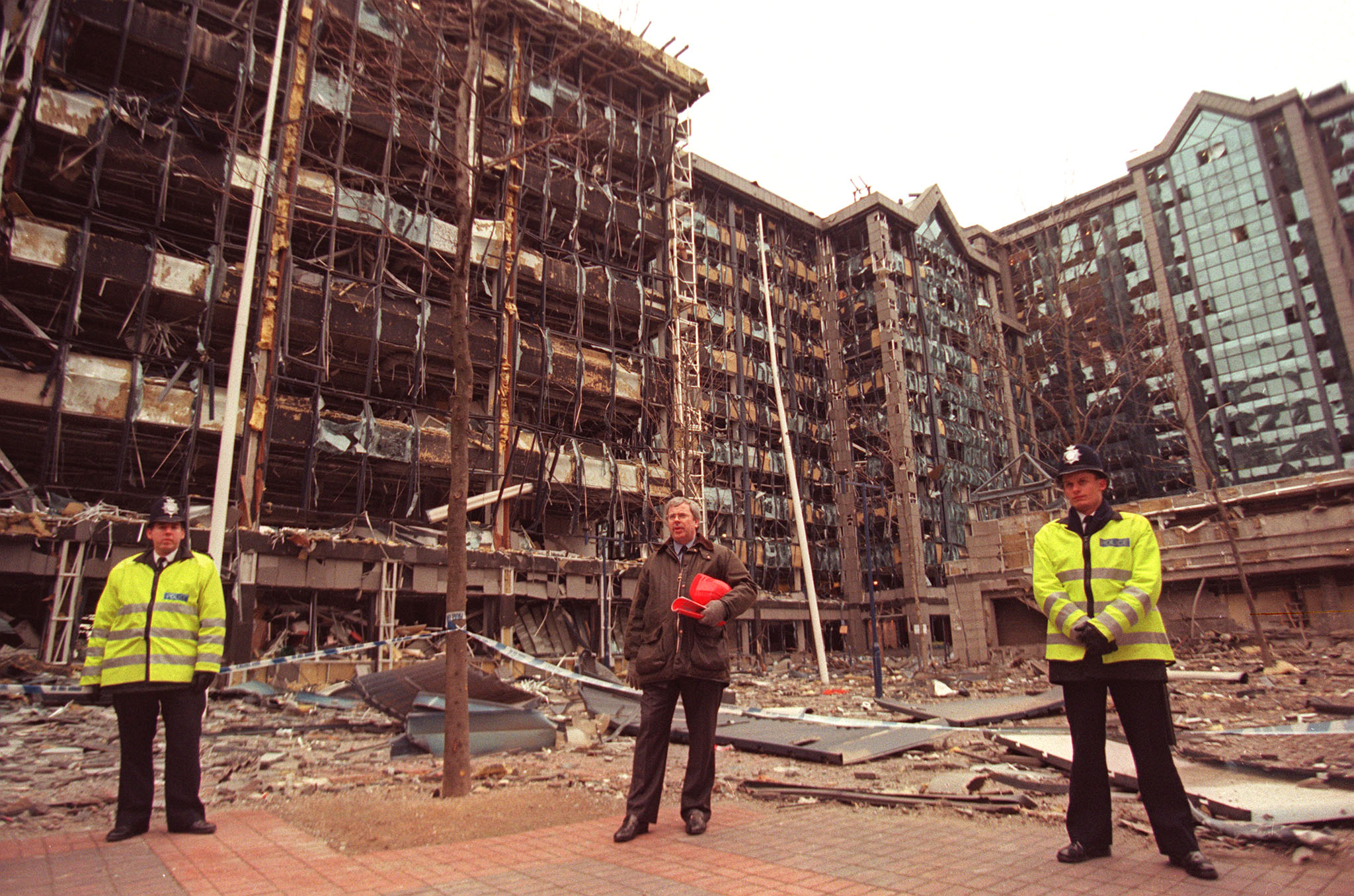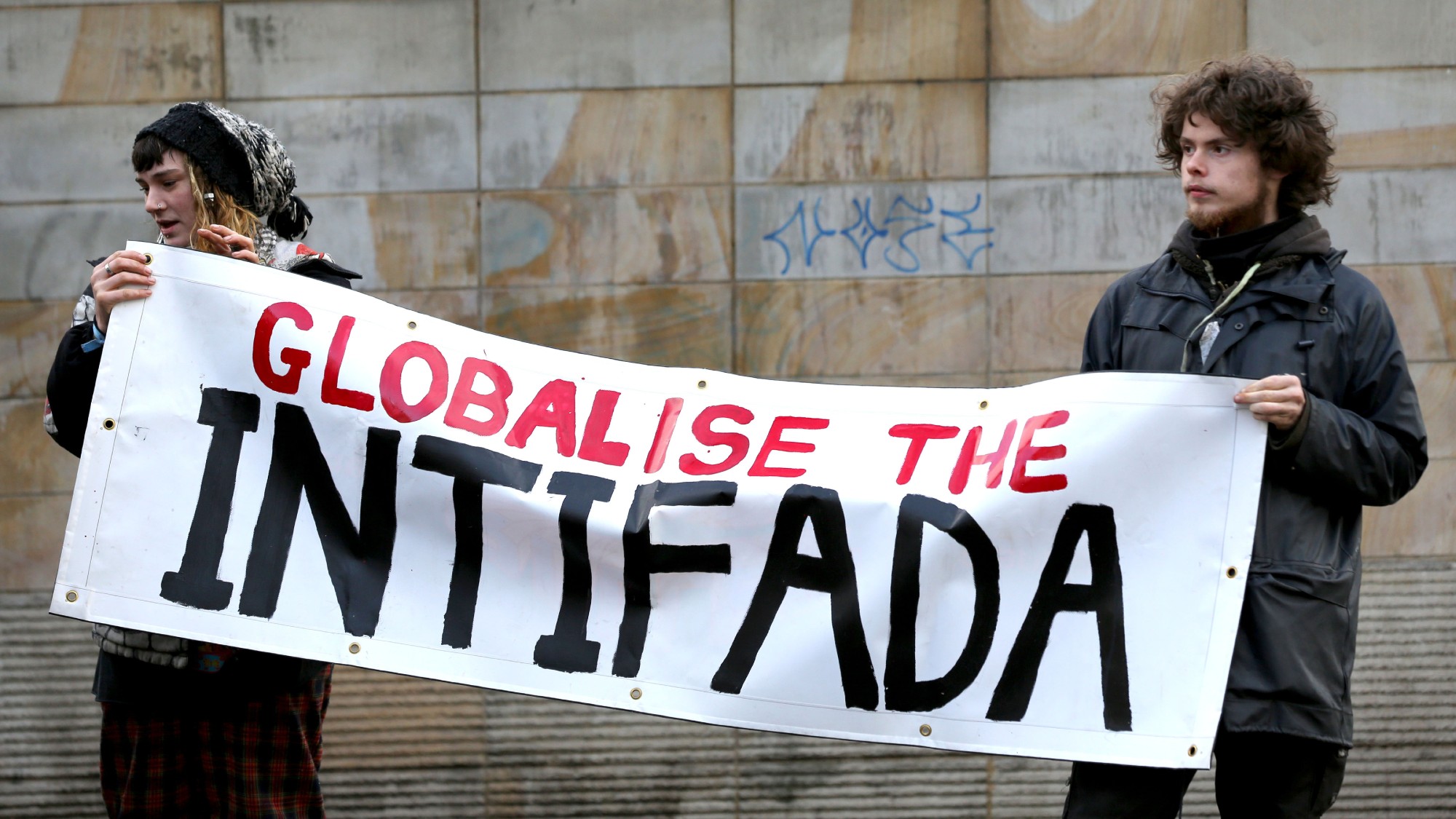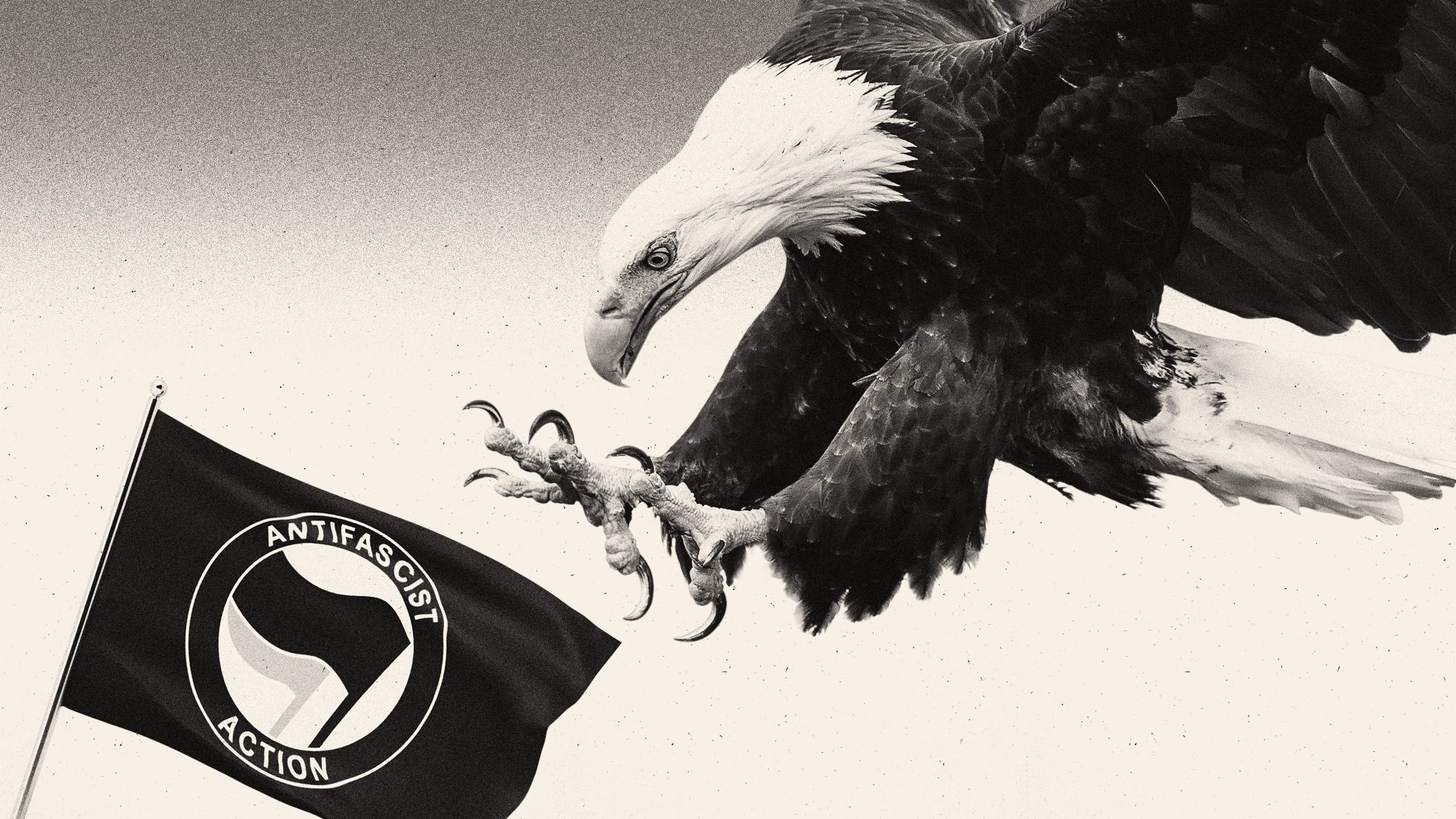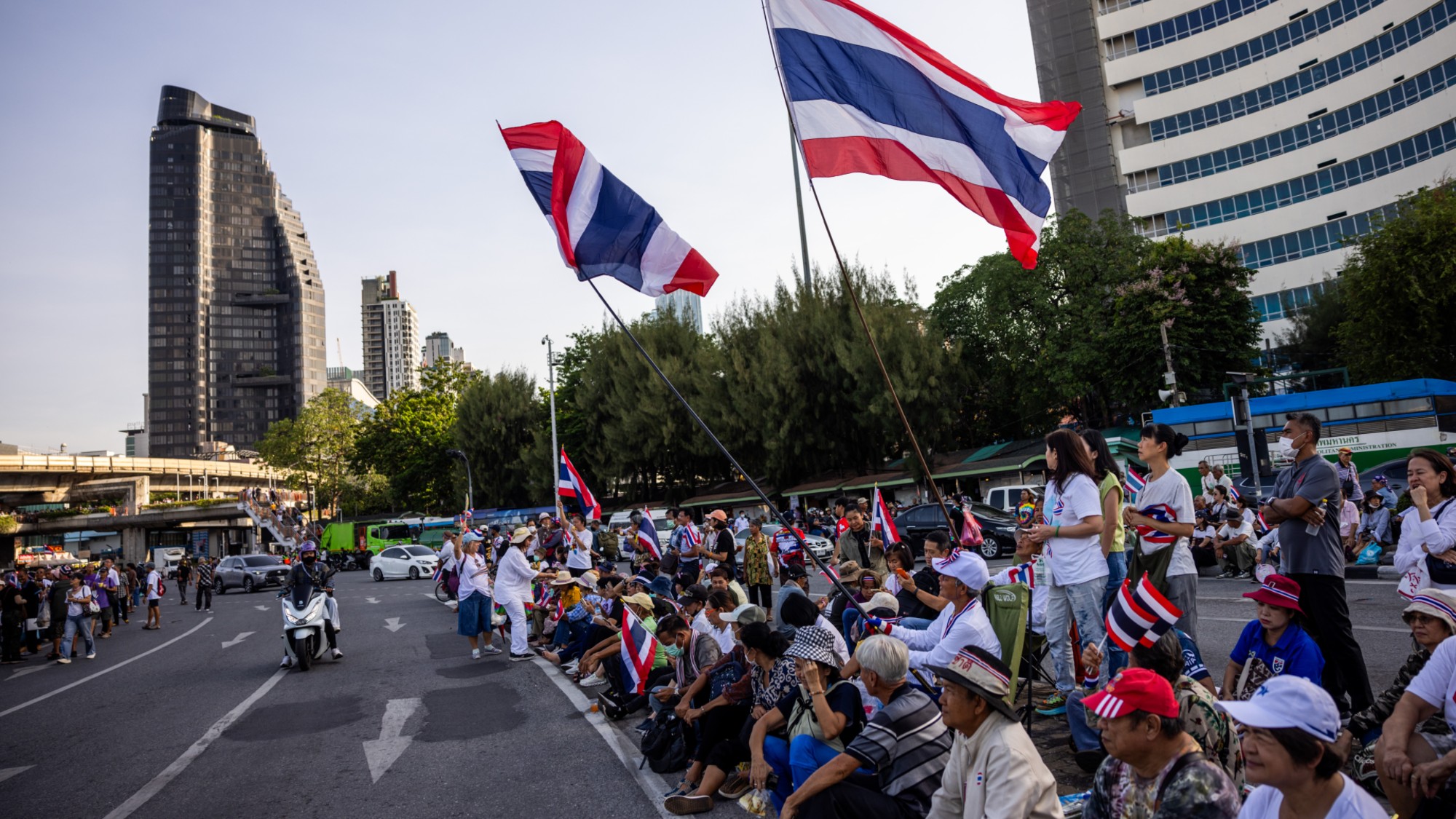London terror attacks: The city's troubled history
From the Gunpowder Plot to the London Bridge attack, political violence has shaped the capital throughout the centuries

A free daily email with the biggest news stories of the day – and the best features from TheWeek.com
You are now subscribed
Your newsletter sign-up was successful
The story of terrorism in the UK is "a history that transcends the narrow political and religious dimensions often associated with it today", Newsweek reported in May. Nowhere is that more true than in London, a city that has been a staging ground for political violence for centuries.
From the Gunpowder Plot to Victorian anarchists to modern jihadi attacks, here are some of the terror incidents that have left their physical and emotional scars on London:
The Gunpowder Plot
The Week
Escape your echo chamber. Get the facts behind the news, plus analysis from multiple perspectives.

Sign up for The Week's Free Newsletters
From our morning news briefing to a weekly Good News Newsletter, get the best of The Week delivered directly to your inbox.
From our morning news briefing to a weekly Good News Newsletter, get the best of The Week delivered directly to your inbox.
The Gunpowder Plot of 1605 remains one of the most infamous and well-known episodes in English history.
Infuriated by perceived Protestant persecution, 13 English Catholics concocted a daring plan to plant barrels of gunpowder below the House of Lords and set them off during State Opening of Parliament, killing James VI and I, as well as much of the Protestant aristocracy.
However, the plot was exposed when the authorities saw a letter warning the brother-in-law of one of the conspirators not to go to Westminster. Two of the plotters were shot attempting to escape arresting officers, while the 11 others were executed.
Although the Gunpowder Plot was ultimately unsuccessful, fear of Catholic terrorism lived on in popular memory for generations. More than 60 years later, when the Great Fire of London raged for days, violent mobs set upon Catholics, believing them responsible for the blaze.
A free daily email with the biggest news stories of the day – and the best features from TheWeek.com
Although an official inquiry found no truth in the rumours, "the Catholic conspiracy story persisted for years", says the Smithsonian Magazine.
The IRA and the Troubles (1867, 1971-2001)
London has long been a target for Irish nationalist violence. The earliest incident occurred in 1867, when an explosion intended to free a Republican prisoner being held at Clerkenwell Prison damaged nearby houses and caused 12 deaths.
However, the campaign was at its most intense in the capital between the 1970s and 1990s, when the IRA terror threat was a part of everyday life until the the signing of the Good Friday Agreement in 1999.
London was the target of dozens of bomb attacks, many intended as a statement rather than to kill or wound. The IRA would often give a warning phone call to allow the authorities enough time to evacuate the target before the explosion occurred.
However, some were deadly. On 20 July 1982, twin explosives went off during military ceremonies in Hyde Park and Regent's Park, killing 11 soldiers of the Household Cavalry and the Royal Green Jackets.
The following year, six people died when a car bomb exploded outside Harrods during the Christmas shopping season, while bombings in the City of London in 1992 and in 1993 caused more than £1bn in damage.
The legacy of the Troubles on London can still be felt today in unexpected ways. The lack of litter bins on many streets and train stations is because they were a favourite location for IRA bombs - particularly metal bins, which could act as deadly shrapnel in an explosion.
Even today, the only bin a traveller is likely to encounter in a London tube or rail station is of the clear plastic variety.
7/7 bombings (2005)
On 7 July 2005, in the middle of the morning rush hour, three suicide bombers detonated explosives on the London Underground, striking Russell Square, Aldgate and Edgware Road stations.
An hour later, a fourth terrorist blew himself up on a bus near Euston.
In all, 52 people were killed and more than 700 injured, making the 7/7 bombings the worst terror attack in London's history.
The bombers, who pledged allegiance to al-Qaeda in videos filmed prior to the attacks, were identified as Hasib Hussain, 18, Mohammad Sidique Khan, 30, and Shehzad Tanweer, 20, second generation British Pakistanis from Leeds, and Jamaican-British convert Germaine Lindsay, 19.
Two weeks later on 21 July, failed attacks by four would-be suicide bombers disrupted London’s public transport system again. A fifth man dumped his device without attempting to set it off.
Amid sky-high security tensions, Brazilian electrician Jean Charles de Menezes was wrongly identified as a suspect in a failed follow-up bombing and shot dead by firearms officers at Stockwell tube station one day later.
Spring of terror (2017)
Between March and June 2017, London has been the setting for three terror attacks in which vehicles were used as deadly weapons to target ordinary citizens on the street.
On 22 March, Khalid Masood, a convert to Islam with a history of violent crime, drove a hired car into pedestrians crossing Westminster Bridge, killing four people. He then headed for the Palace of Westminster, where he stabbed PC Keith Palmer to death before being shot dead by security staff.
On 8 June, the capital suffered yet another deadly vehicle and knife rampage, this time on London Bridge.
Three attackers rammed a van into pedestrians and then attacked passers-by with knives, killing eight people and wounding dozens. The rampage came to an end when firearms officers shot the assailants dead in Borough Market.
Then, on Monday 19 June, a van ploughed into worshippers leaving a Muslim cultural centre in Finsbury Park after late-night Ramadan prayers. One person died at the scene, and nine were taken to hospital for injuries sustained in the collision.
Darren Osborne was arrested and is being held on suspicion of terrorist offences, including attempted murder.
-
 The 8 best TV shows of the 1960s
The 8 best TV shows of the 1960sThe standout shows of this decade take viewers from outer space to the Wild West
-
 Microdramas are booming
Microdramas are boomingUnder the radar Scroll to watch a whole movie
-
 The Olympic timekeepers keeping the Games on track
The Olympic timekeepers keeping the Games on trackUnder the Radar Swiss watchmaking giant Omega has been at the finish line of every Olympic Games for nearly 100 years
-
 How corrupt is the UK?
How corrupt is the UK?The Explainer Decline in standards ‘risks becoming a defining feature of our political culture’ as Britain falls to lowest ever score on global index
-
 The high street: Britain’s next political battleground?
The high street: Britain’s next political battleground?In the Spotlight Mass closure of shops and influx of organised crime are fuelling voter anger, and offer an opening for Reform UK
-
 What is the global intifada?
What is the global intifada?The Explainer Police have arrested two people over controversial ‘globalise the intifada’ chants
-
 Is a Reform-Tory pact becoming more likely?
Is a Reform-Tory pact becoming more likely?Today’s Big Question Nigel Farage’s party is ahead in the polls but still falls well short of a Commons majority, while Conservatives are still losing MPs to Reform
-
 Taking the low road: why the SNP is still standing strong
Taking the low road: why the SNP is still standing strongTalking Point Party is on track for a fifth consecutive victory in May’s Holyrood election, despite controversies and plummeting support
-
 The Israeli hostages and Palestinian prisoners being released
The Israeli hostages and Palestinian prisoners being releasedThe Explainer Triumphant Donald Trump addresses the Israeli parliament as families on both sides of the Gaza war reunite with their loved ones
-
 What does Trump designating antifa a terror organization let him do?
What does Trump designating antifa a terror organization let him do?Today’s Big Question Concerns about ‘broad First Amendment violations’
-
 ‘Democracy is under threat globally’
‘Democracy is under threat globally’Instant Opinion Opinion, comment and editorials of the day